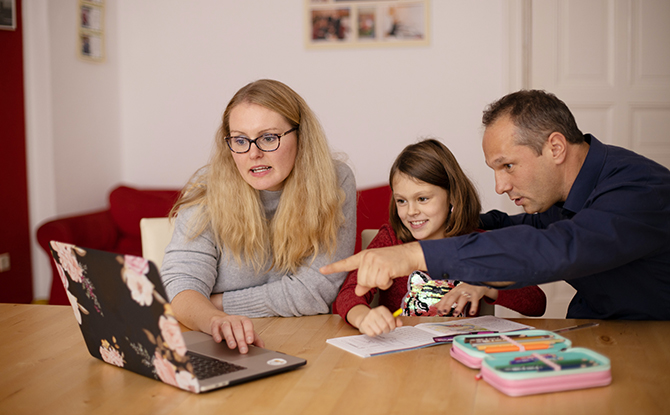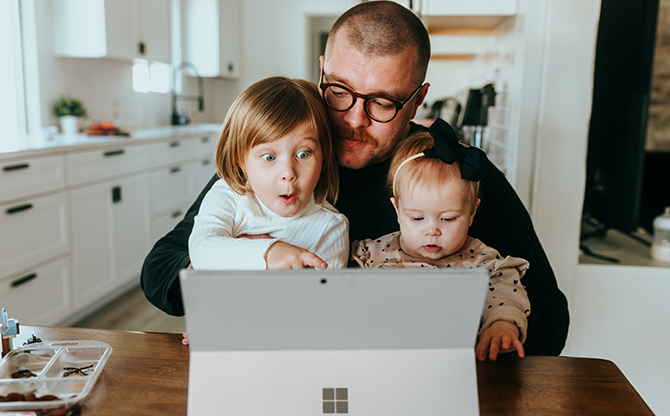
A parent’s money habits can affect a child’s development in terms of how they perceive and manage their own finances as they grow up. While most people are aware that knowing how to manage money can have a big impact on their own personal success, did you know that your spending patterns can also have an impact on your child’s development and his or her relationship with money?
Unfortunately, many parents don’t give too much thought as to how their personal money habits could be affecting their child’s development.
As a parent, this is something to consider. Financial management is a skill that children pick up from those around them. Kids will look at how parents are using money and model after them. Therefore, making use of money in a positive way will have a positive influence on your child’s development.
How Your Money Habits Can Affect Your Child’s Development: What To Look Out For
Money Habits Develop in Childhood
Children pick up on their parents’ financial habits early on and eventually adopt them as their own. That means there’s a good chance that your children will begin to follow the same financial path if you frequently make impulse purchases or live paycheck to paycheck (or worse, skip out on bills).
BE PSLE-READY: Join Expert Educators for Revision Boosters to Empower P6 Students
BURP: Join the Sound Collector on a Whimsical Chase at Esplanade – Theatres on the Bay
WEEKEND IDEAS: Get Inspirational Ideas of Things to Do
On the other hand, by setting an example of sound financial behavior, such as by creating an emergency fund or making regular contributions to your retirement, you are teaching your child valuable lessons that they can build on over time.
The Negative Impact of Poor Money Habits
Bad financial practices can have long-lasting negative effects.
As the saying goes “monkey see, monkey do”. This applies to the way you handle your money. It’s important to remember that children will probably behave in a similar way financially to their parents when they’re adults.
If parents are not conscientious with their own financial habits, then they risk their children developing a lack of financial responsibility.
Specifically, research has found that children who grow up in a home with poor finances or financial instability are more likely to:
- Struggle with budgeting in adulthood
- Have difficulty managing debt responsibly
- Find it difficult to save for retirement
- Struggle with making larger purchases.
What this means for you as parents is that it is essential for you to model good financial habits if you want your children to develop strong financial behaviour as well. If you show them a pattern of responsible saving and spending from an early age, it will help your children learn how to manage their own finances more effectively when they grow up.
Practical Ways to Teach Kids About Money

There are several practical ways to involve your children in financial decisions and help them establish sound financial practices. You could, for instance, give your children an allowance and allow them to manage their money, or you could even teach them how to invest.
When it comes to teaching your child how to manage their money, here are a few tips:
- Establish a budget: Sit down with your children and work out a plan they can stick to. They will learn the value of budgeting and self-imposed restrictions as a means of achieving their financial objectives.
- Give them spending money: Giving your kids some spending money is a crucial part of instilling responsibility, but make sure you set rules for how they should use it so they can comprehend the idea of postponing gratification and making responsible financial decisions.
- Talk about money: Maintaining an open line of communication with your children about money and finances will help them comprehend why certain decisions are made and why certain financial habits are essential for success.
Practical Tips for Building Financially Savvy Kids

Last but not least, it’s critical to realize that teaching your kids about money requires more than just talking to them.
The best way for kids to learn about saving and practical money management is to get them involved in activities that demonstrate these concepts.
You should plan a few specific activities and follow up with your kids to make sure they’re on track if you really want to give them the knowledge and skills they need to make wise financial decisions.
Here are some general tips for doing so in a way that teaches them about money without creating undue stress or pressure:
- Create a budget: Work together with your child and have them come up with its components such as total income, spending allotment per month, and other major purchases. Have them enter all income and expenses in an Excel document or via an app like Mint.
- Encourage savings: For children, the idea of delayed gratification is challenging, but it can be learned if encouraged from a young age.
- Let them make mistakes: Allow your child to make a few mistakes so that they can better comprehend the effects of poor money management. Talk afterwards about how things might have been better if different choices had been made and how those choices might have affected their long-term financial objectives.
And just as it is with a lot of other aspects of parenting, you can expect to have to “rinse and repeat” these over and over again to instil the correct understanding and habits in your child.
Teach Your Children Healthy Money Habits
It’s time to step back and consider how your spending habits may influence your child. Even though it’s impossible to influence every aspect of our children’s development, we can have an impact by developing wise money management practices.
There are many actions we can take to have a positive impact on our children’s financial future, from saving money and budgeting to teaching them about investing. These actions will all be worth the while if we can teach our children healthy and good money habits from an early age.























